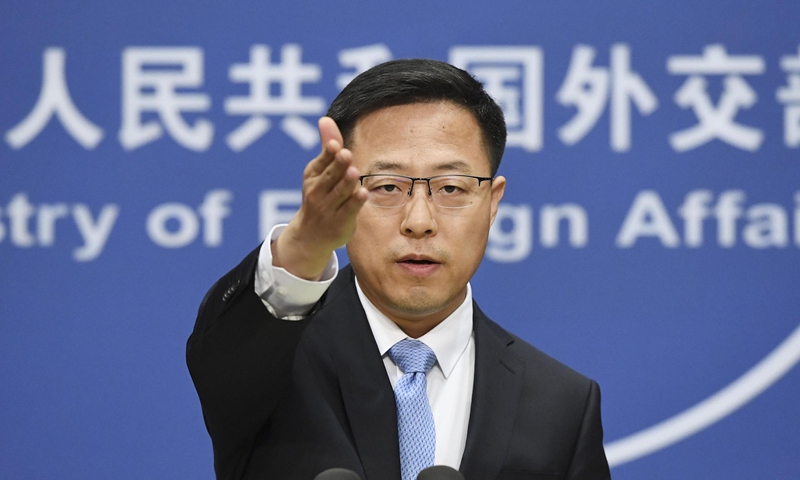China sanctions US lawmakers, NGO heads as countermeasures
Source: Global Times Published: 2020/8/10 17:50:30

Foreign Ministry spokesperson Zhao Lijian Photo: VCG
China on Monday announced sanctions on 11 US lawmakers and individuals, including Marco Rubio and Ted Cruz, as countermeasures against earlier US sanctions on Chinese central government and Hong Kong Special Administrative Region (HKSAR) officials following the passing of the national security law for Hong Kong.
The US State Department and the Department of the Treasury on Friday announced sanctions against some Chinese officials, including HKSAR Chief Executive Carrie Lam.
"China resolutely opposes and strongly condemns such blatant interference in Hong Kong affairs - China's internal affairs - as it seriously violated international law and basic principles of international relations," Chinese Ministry of Foreign Affairs spokesperson Zhao Lijian said at Monday's routine press conference.
In response to the US actions, China announced sanctions starting Monday against 11 US lawmakers and NGO chiefs who performed badly on Hong Kong-related affairs. Among them are senators Marco Rubio, Ted Cruz, Josh Hawley, Tom Cotton, Pat Toomey and Congressman Chris Smith.
Chiefs of so-called NGOs, namely Carl Gershman, president of the National Endowment for Democracy, Derek Mitchell, president of the National Democratic Institute, Daniel Twining, president of the International Republican Institute, Kenneth Roth, executive director of Human Rights Watch, and Michael Abramowitz, president of Freedom House, are also on the sanctions list.
Since the return of Hong Kong , the "one country, two systems" principle has been recognized around the world as a success and Hong Kong residents enjoy democratic rights and all sorts of freedoms in line with the law. That is a fact that no unbiased person can deny, Zhao said.
"But the principle also faces challenges during its implementation, that is to say, national security risks in HKSAR," Zhao said.
When the HKSAR failed to complete the legislation work amid threats and harm to national security in Hong Kong, the central government took the decisive step to close the loopholes in legislation and enforcement at the national level. The national security law for Hong Kong aims to punish a few criminals who jeopardize national security, and will protect law-abiding residents who form the majority, Zhao stressed.
"I want to reiterate that Hong Kong is China's Hong Kong and Hong Kong affairs are China's internal affairs that no external forces can interfere in. China urges the US to recognize the situation and correct its wrongdoings, and not to go further and further on the wrong path," Zhao said.
Global Times
RELATED ARTICLES:
Posted in: DIPLOMACY